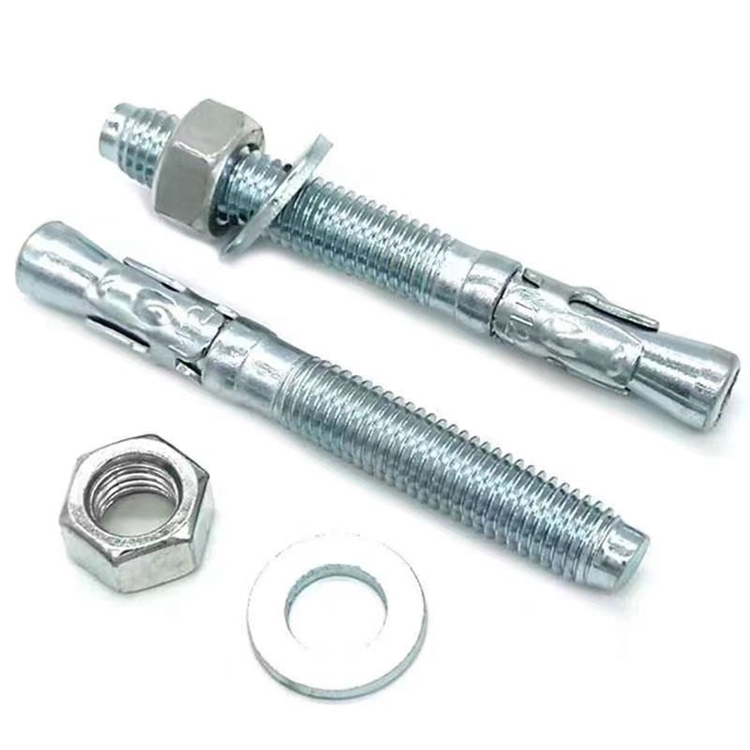Expanding Global Market for Bolt Exporters and Manufacturers
Nov . 26, 2024 14:19 Back to list
Expanding Global Market for Bolt Exporters and Manufacturers
Expanding Bolts Exporters A Global Perspective
In the manufacturing and construction industries, expanding bolts play a crucial role due to their unique ability to provide secure anchorage in various materials. As industrial demands continue to rise, the market for expanding bolts is experiencing significant growth. This article delves into the expanding bolts exporters landscape, examining trends, challenges, and opportunities in the global marketplace.
Expanding bolts, also known as expansion anchors, are fasteners designed to create a tight fit within drilled holes. They are primarily used in concrete, brick, and masonry, serving as vital components in applications ranging from structural support to heavy equipment installation. The increasing need for robust construction solutions in urban development, infrastructure projects, and commercial construction is driving demand for these versatile fasteners.
Several key players dominate the expanding bolts export market, contributing to the global supply chain. Countries such as China, the United States, Germany, and India are leading exporters, leveraging their advanced manufacturing capabilities and cost-effective production techniques. With extensive industrial bases, these countries produce high-quality expanding bolts that adhere to international standards, making them reliable choices for businesses worldwide.
The rise of the e-commerce sector has further propelled the expansion of bolts exportation. Online platforms have made it easier for manufacturers to reach international markets and for buyers to source products from various suppliers, thus fostering competitive pricing and enhanced product availability. Many exporters have embraced digital marketing strategies to promote their offerings, showcasing their product specifications, certifications, and customer testimonials, which significantly contribute to building trust with potential clients.
expanding bolts exporters

However, expanding bolts exporters face challenges in navigating regulatory frameworks and compliance requirements in different countries. Each nation may have distinct standards for construction materials, which exporters must adhere to in order to avoid complications in customs and shipping. Additionally, fluctuating raw material prices can impact production costs, potentially affecting profit margins and pricing strategies. Exporters need to establish adaptive strategies to manage these variables effectively.
To mitigate potential risks, many exporters are investing in research and development to innovate their product lines. Developing new materials and designs for expanding bolts can cater to specific market niches, such as high-strength applications or environmentally friendly solutions. This adaptability not only enhances product offerings but also ensures long-term competitiveness in a rapidly evolving market.
The growing emphasis on sustainability in construction is another trend influencing the expanding bolts exports. Customers are increasingly looking for products that minimize environmental impact, prompting exporters to explore eco-friendly materials and manufacturing processes. This shift is not only a response to consumer preferences but also aligns with global efforts toward reducing carbon footprints in various industries.
Moreover, the burgeoning demand for smart construction solutions is creating new avenues for growth in the expanding bolts sector. Integrating technology into traditional fastener production can lead to the development of smart bolts that provide real-time monitoring for structural integrity. Such innovations have the potential to revolutionize how expanding bolts are used in construction, thereby expanding their market reach and applications.
In conclusion, the landscape of expanding bolts exporters is evolving significantly due to various factors, including increased global demand, the rise of e-commerce, and a focus on sustainability and innovation. While challenges remain, such as regulatory compliance and fluctuating costs, the opportunities for growth in this sector are abundant. Exporters that can adapt to market demands, invest in innovation, and maintain high-quality standards are likely to thrive in the competitive global marketplace. As infrastructure projects continue to increase around the world, the importance of expanding bolts as essential components of construction will only heighten, underscoring the vital role of exporters in meeting this demand.
Latest news
-
High-Quality Panel Stud Bolt Reliable Panel Stud Bolt Factory & Suppliers
NewsJul.08,2025
-
High-Precision Fine Thread Locknuts Manufacturer & Supplier Custom Solutions
NewsJul.08,2025
-
PH Imperial Stud Bolt – High Strength Fasteners from Leading Supplier & Factory
NewsJul.07,2025
-
High-Quality Allen Wrench Bolts Leading Factory, Company & Suppliers
NewsJul.07,2025
-
Wholesale Ball Stud Bolt - High Quality Supplier & Factory Price Reliable Wholesale Ball Stud Bolt Company
NewsJul.06,2025
-
High-Strength Alloy Bolts Manufacturer & Supplier Quality Alloy Fasteners Factory
NewsJul.06,2025
